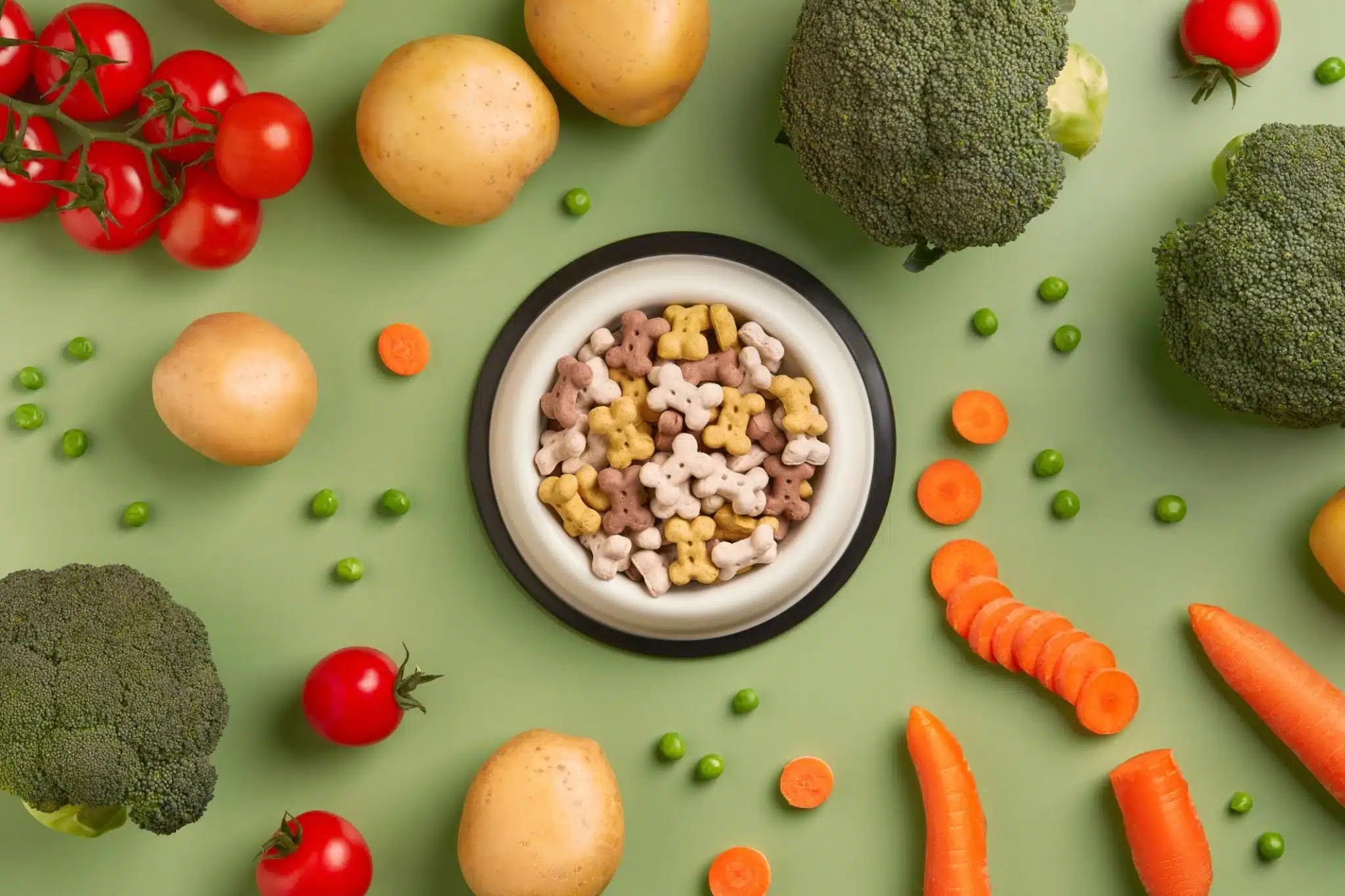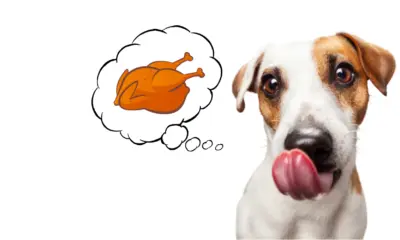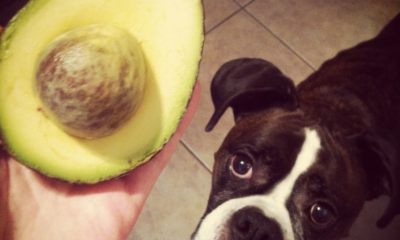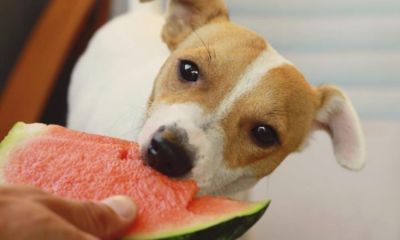Food and Nutrition
Homemade Vegan Dog Food: A Comprehensive Guide
As a pet owner, you want to provide your doggo with the greatest nutrition available. Homemade vegan dog food is a popular choice among pet owners who wish to provide their pets with a nutritious, balanced diet devoid of animal ingredients.
Vegan dog food is becoming increasingly popular among pet owners that prioritize animal welfare, the environment, and their personal health. However, preparing homemade vegan dog food can be intimidating for those unfamiliar with this cuisine. This article will cover all you need to know about producing vegan dog food at home, including the materials, the advantages, and the preparation process.
Why Homemade Vegan Dog Food?
Homemade vegan dog food is a great alternative for pet owners who wish to have complete control over the products their dog consumes. By preparing your own dog food, you can ensure that your dog receives a balanced diet free of artificial preservatives, fillers, and other dangerous components typically found in commercial dog food.
Additionally, homemade vegan dog food can be tailored to your dog’s specific dietary requirements. For example, if your dog has a food allergy, you may easily exclude that ingredient from the dish. In addition, if your dog has a medical problem, such as kidney illness, you can modify the recipe to fit its unique nutritional needs.
Ingredients Essential for Homemade Vegan Dog Food
The essential ingredients for homemade vegan dog food are a combination of protein, carbs, and healthy fats. Here is a list of the key ingredients you will require:
• Protein: For vegan dogs, legumes like lentils, chickpeas, and black beans are a good source of protein. Additionally, quinoa, tofu, and tempeh are viable possibilities.
• Carbohydrates: Rice, oats, and potatoes are ideal carbohydrate sources for vegan canines. Additionally, you can use whole-grain bread and pasta.
• Fats: Healthy fats are needed for a balanced diet and may be found in avocado, coconut oil, and flaxseed oil, among other substances.
• Vegetables: Vegetables, including carrots, sweet potatoes, and spinach, offer your dog with critical vitamins and minerals.
• Supplements: Vitamin B12 and Omega-3 fatty acids are two vital nutrients typically absent from vegan diets. You may find these nutrient-containing supplements at your local pet store.
Preparation Method
Making vegan dog food at home is easier than you would imagine. Here is a detailed instruction to preparing a simple vegan dog food recipe:
1. Prepare the protein source (such as lentils) according to the instructions on the package.
2. Prepare the carbohydrate source (such as rice) according to the instructions on the package.
3. Puree or mash the vegetables (e.g. carrots and sweet potatoes).
4. Combine all of the ingredients in a large bowl.
5. Add good fats and nutritional vitamins.
6. Serve vegan dog food to your dog.
It is essential to remember that the amounts of each item will vary based on your dog’s specific nutritional requirements. Using a dog food calculator, you may establish the appropriate proportions based on your dog’s age, weight, and degree of activity.
Pros and Cons of Vegan Dog Food
As pet owners, we want to guarantee that our furry companions receive the optimal diet for their general health and well-being. In recent years, an increasing number of pet owners have chosen to give their dogs a vegan diet, but is this the optimal diet for our canine companions?
Pros of Vegan Dog Food
1. Some studies have indicated that a vegan diet can have favorable impacts on the health of dogs, reducing their risk of obesity, diabetes, and cardiovascular disease.
2. A vegan diet is a means for pet owners who are concerned about animal rights and ethical considerations to connect their pet’s diets with their own ideas and values.
3. Vegan dog food is frequently manufactured without common allergens such as chicken and beef, making it an excellent choice for dogs with food allergies or sensitivities.
4. By avoiding meat-based dog food, pet owners may lessen their carbon impact and contribute to a more sustainable food system.
Cons of Vegan Canine Diets
1. Dogs are omnivores with a natural preference for meat-based protein, which is difficult to match with a vegan diet. A vegan diet that is not properly balanced might result in nutritional deficiencies, such as a lack of important amino acids, vitamins, and minerals.
2. Dangers to Health: Vegan dog food may not contain all of the nutrients that dogs need to maintain their health, which can lead to severe health problems. A deficiency in vitamin A and taurine, both of which are found in animal-based proteins, can lead to visual and cardiac disorders, for instance.
3. Challenging to Balance: A vegan diet for dogs can be difficult to balance and takes extensive research and knowledge. The owners of dogs must ensure that their pets receive all of the necessary nutrients, including protein, vitamins, and minerals.
4. Vegan dog food is typically more expensive than regular meat-based diets, which can be a deterrent for some pet owners.
Frequently Asked Questions about Vegan Dog Food
As pet owners, we want to guarantee that our dogs receive the optimal diet for their general health and wellbeing. In recent years, there has been a growing trend of pet owners preferring to give their dogs a vegan diet, but those considering this diet for their furry companions may have many doubts.
Is a vegan diet suitable for dogs?
Dogs are omnivores with an innate preference for meat-based protein, which is difficult to replace with a vegan diet. However, a well-balanced, well-researched vegan diet can contain all the important nutrients dogs require to maintain their health. Regardless of the type of food you choose to feed your dog, it is crucial to work closely with a veterinarian to provide a balanced and nutritious diet.
What health advantages does a vegan diet have for dogs?
Some studies have demonstrated that a vegan diet can improve the health of dogs by lowering their risk of obesity, diabetes, and heart disease. Vegan dog food is frequently formulated without common allergens such as chicken and beef, making it an excellent choice for dogs with food allergies or sensitivities.
What concerns does a vegan diet have for dogs?
A vegan diet that is not properly balanced might result in nutritional deficiencies, such as a lack of important amino acids, vitamins, and minerals. Vegan dog food may not contain all of the nutrients dogs need to maintain their health, which can lead to severe health issues. A deficiency in vitamin A and taurine, both of which are found in animal-based proteins, can lead to visual and cardiac disorders, for instance.
How do I ensure that my dog’s vegan food is nutritionally balanced?
A dog’s vegan diet can be tough to balance and takes extensive research and knowledge. The owners of dogs must ensure that their pets receive all of the necessary nutrients, including protein, vitamins, and minerals. Regardless of the type of food you choose to feed your dog, it is crucial to work closely with a veterinarian to provide a balanced and nutritious diet.
Is vegan dog food more expensive than regular diets including meat?
Vegan dog food can be more expensive than standard meat-based diets, but the price can vary significantly depending on the sort of vegan dog food you select. It is essential to examine not only the price but also the overall quality and nutritional worth of the dog food you select.
Vegan dog food is a terrific option for pet owners who care deeply about animal rights and ethical considerations and wish to lessen their carbon footprint. Regardless of the sort of food you choose to feed your dog, you must work closely with a veterinarian to ensure that he receives a balanced and nourishing diet.
Conclusion
In conclusion, there are both advantages and disadvantages to feeding a vegan diet to canines, and pet owners should carefully examine these variables when determining the optimal diet for their furry companions. Regardless of the type of food you choose to feed your dog, it is crucial to work closely with a veterinarian to provide a balanced and nutritious diet.



























